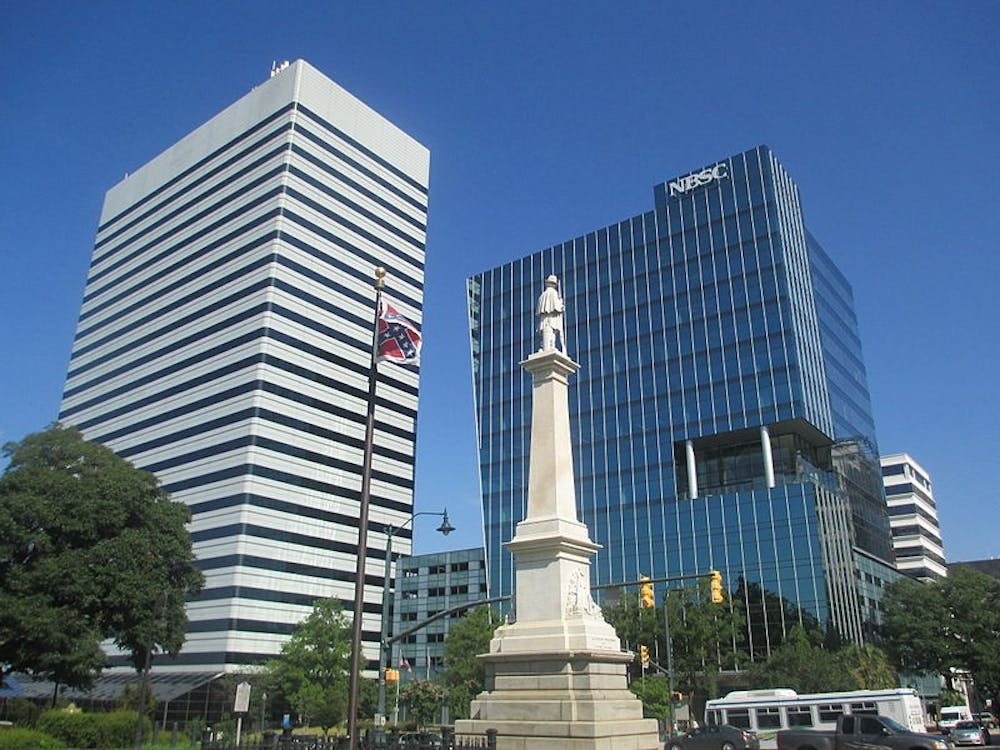The roots of racism grew deep into American soil for generations. From the Civil War to the Civil Rights Movement discrimination was removed like pulling a weed from a garden. Though time usually allows old wounds to heal, today it is clear that new weeds have sprung forth from the roots.
In 2014, inquiries into racism involving the treatment of black people by white police officers sparked national interest. The town of Ferguson, Missouri became the first of several American communities to express outrage over police shootings of black citizens.
Over the course of many months protests turned to riots, and climaxed when thousands of National Guard troops took to the streets of Baltimore, Maryland to restore order.
The accusations against several police departments across the U.S. sparked the U.S. Department of Justice to launch investigations into their practices. Cleveland, Ohio, Baltimore, Maryland and Ferguson, Missouri were three such cities to be reviewed, according to the U.S. Department of Justice.
The national attention rippled into local communities across the country, including Shippensburg University, which had students organize a "Rally for Ferguson" event.
In the past few weeks the issue of racism has extended beyond the practices of local police departments. The Charleston Church shooting in South Carolina left nine black Christians dead after a white 20-year-old performed a premeditated massacre, reported CNN. The incident was being described as a hate crime, which may have inspired other hate crimes in the south.
Several predominantly black churches were burned down in southern states. The Federal Bureau of Investigation (FBI) launched an investigation to determine if these fires were arson and if they are connected, according to the Washington Post.
"They're being investigated to determine who is responsible and what motives are behind them," Paul Bresson, an FBI spokesman said. "I'm not sure there is any reason to link them together at this point."
At least three of the churches that burned are being investigated by the FBI for arson.
If hate crimes and discrimination are not enough to suggest there is a reemergence of racism as a national discussion, then you only have to look to how American society is reacting.
First there was Starbucks, a major company and well-known coffee brand, which led the charge into a public conversation about race relations with their "Race Together" campaign, which aimed at getting people to talk about more openly about the uncomfortable topic. It received major media attention in March 2015.
Second, there is the more recent conversation in South Carolina over whether or not the Confederate flag should be allowed to be flown on government property, at the state capitol building. The matter became subject to debate when some people questioned if the flag was a sign of racism.
President Barack Obama joined the national discussion on the podcast "WTF with Marc Maron". Obama said American attitudes and opinions had improved since the 1950's, but that is not all that can be said about race relations, according to National Public Radio.
"What is also true is that the legacy of slavery, Jim Crow, discrimination in almost every institution of our lives — you know, that casts a long shadow," Obama said. "And that's still part of our DNA that's passed on. We're not cured.
"Societies don't overnight completely erase everything that happened 200-300 years prior."
America has undergone at least three major debates that have outlined a social policy on race relations: the signing of the Declaration of Independence, the Civil War and the Civil Rights Movement. Now, in the early part of the 21st century, is the U.S. undergoing a new change and outlook with regard to how we think and talk about race?
Between discriminatory law enforcement practices and hate crimes, the need to reevaluate the state of racism in America seems almost inevitable. Identifying what weeds of hatred have sprung up is the first step in finally killing the dangerous roots that have plagued American heritage with evil.




The Slate welcomes thoughtful discussion on all of our stories, but please keep comments civil and on-topic. Read our full guidelines here.